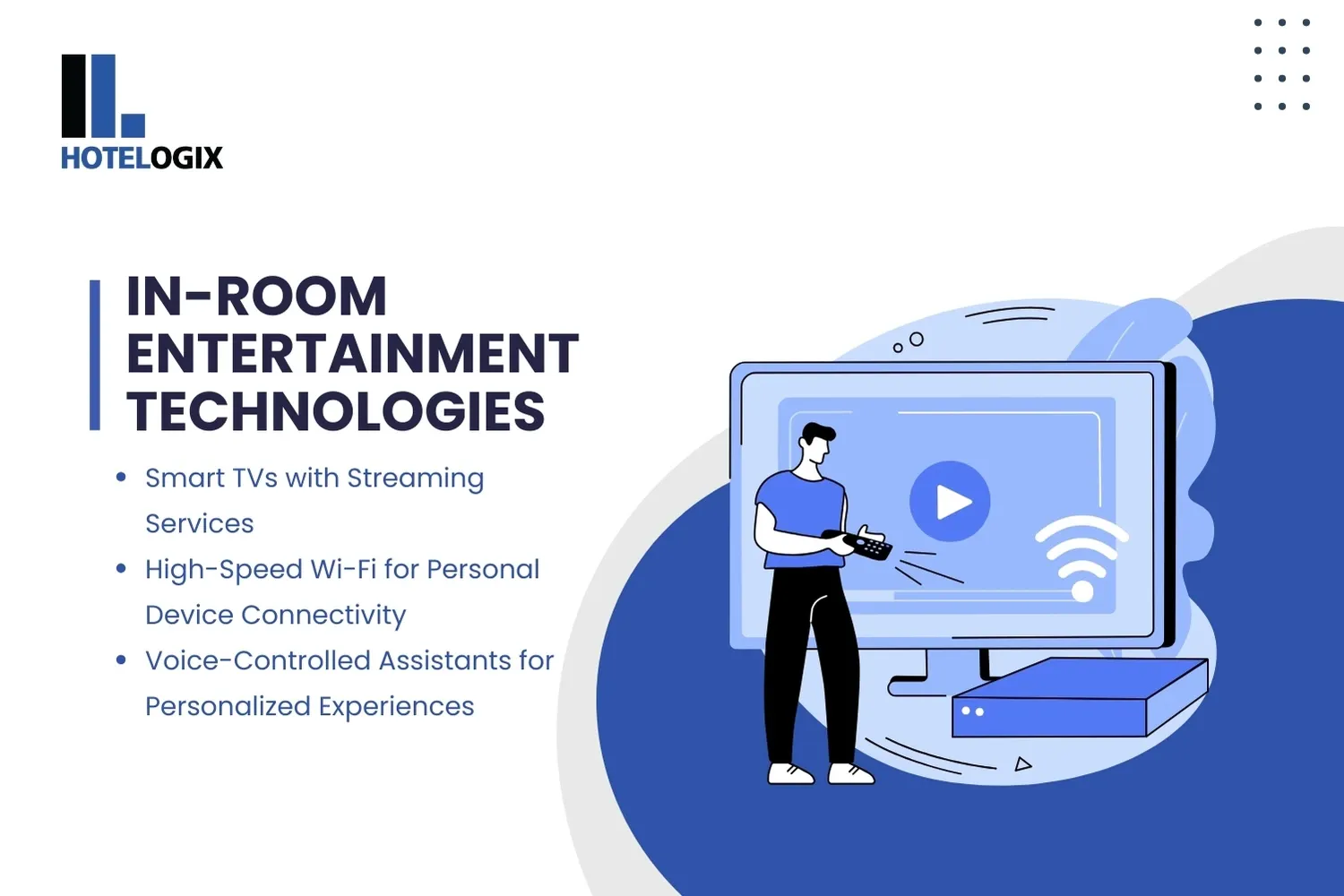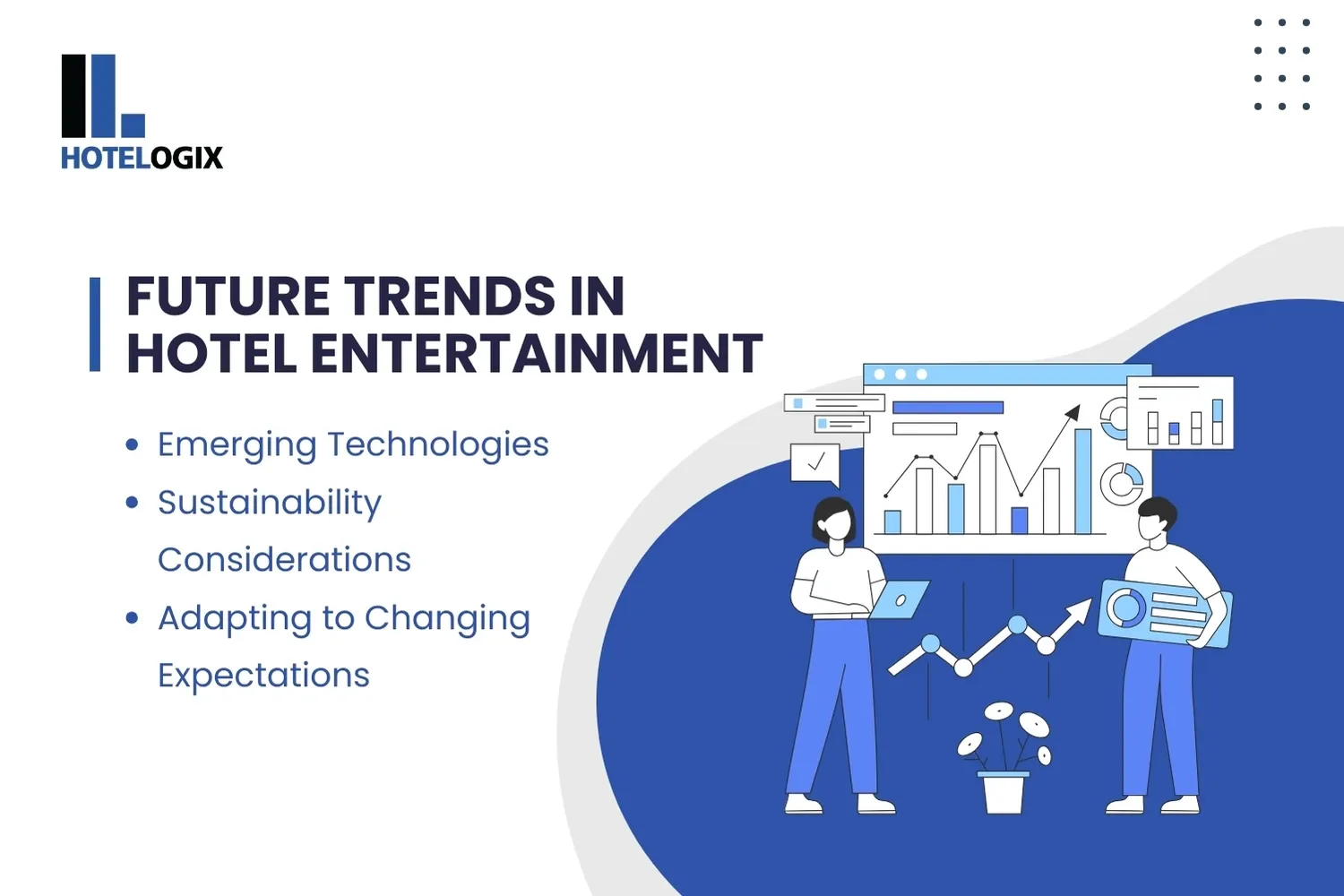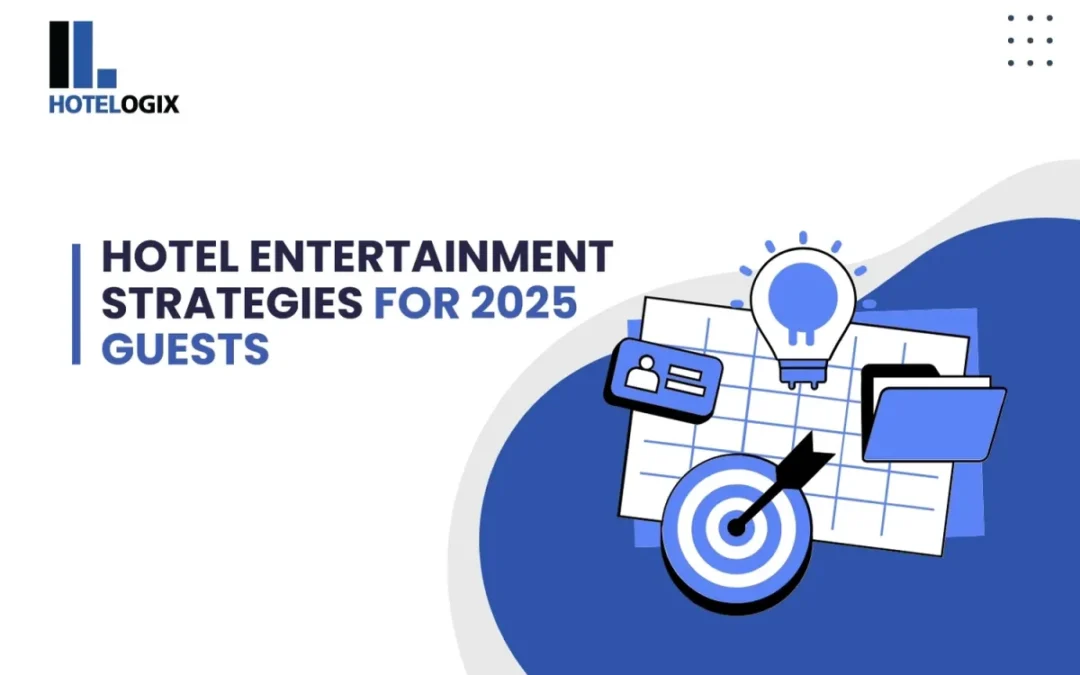In today’s competitive hospitality landscape, offering just a clean room and a comfy bed doesn’t cut it. Travelers now seek experiences that entertain, engage, and leave a lasting impression. Whether it’s a solo business traveler, a family on vacation, or a digital nomad — each guest expects personalization, convenience, and novelty.
This is where hotel entertainment steps in as a powerful differentiator. When strategically implemented, entertainment becomes more than just a guest delight tool — it’s a driver of brand loyalty, ancillary revenue, and five-star reviews.
Understanding Hotel Entertainment
Traditionally, hotel entertainment was limited to a TV in the room or occasional poolside music. Today, it spans a range of experiences — from smart tech and AR integrations to immersive in-house events and curated local experiences.
Modern entertainment offerings are designed to engage different guest personas: fitness-focused travelers, family groups, workcationers, or even wellness-seeking retirees. Hotels that adapt their offerings to these personas stand out in a saturated market.
The Significance of Entertainment in Hotels
Entertainment is deeply tied to how guests perceive value. A hotel that surprises guests with thoughtful, enjoyable experiences will likely earn repeat stays and word-of-mouth promotion.
A 2024 guest insights survey by Oracle Hospitality revealed that 74% of travelers consider personalized entertainment options as a factor in choosing a hotel. Amenities like smart TVs, curated local guides, and cultural activities make the difference between a standard stay and a memorable one.
In-Room Entertainment Technologies

Smart TVs with Streaming Services
Gone are the days of limited channel selections. Guests now expect access to their own streaming accounts, so offering Smart TVs with Netflix, YouTube, or Disney+ is practically standard for modern hotels. Some properties even pre-load guest profiles to elevate personalization.
High-Speed Wi-Fi for Personal Device Connectivity
Today’s average guest connects 3–5 devices. Offering blazing-fast internet isn’t just appreciated — it’s essential. Whether streaming, gaming, or attending Zoom calls, Wi-Fi quality significantly impacts a guest’s impression of the property.
Voice-Controlled Assistants for Personalized Experiences
Integrating voice assistants like Alexa or Google Nest can automate guest requests like room service, lighting adjustments, or wake-up calls. It reduces pressure on front desk staff while offering a futuristic, hands-free guest experience.
Bottom Line for Hoteliers: These technologies improve the guest experience, streamline hotel operations, and reduce friction. Guests remember how you made them feel — and this tech makes them feel in control and catered to.
On-Site Recreational Activities
Fitness Centers and Wellness Programs
With wellness tourism on the rise, hotels that integrate wellness touchpoints such as spa packages, meditation spaces, or healthy F&B options appeal to the health-conscious traveler. Hyatt’s “Find” experiences and Westin’s fitness gear rentals are great examples.
Gaming Lounges and VR Experiences
Properties like the Marriott Marquis in NYC now feature VR lounges and esports setups to entertain young guests and tech lovers. These activities not only offer fun but also serve as unique selling points in promotional content.
Cultural Events and Workshops
Guests love to connect with local culture. Hotels that offer pottery workshops, regional dance classes, or storytelling nights provide immersive experiences that create emotional bonds and inspire content-sharing on social media.
Bottom Line for Hoteliers: These offerings increase dwell time, boost F&B participation, and convert passive guests into brand ambassadors.
Entertainment Packages and Partnerships
Collaborations with Local Attractions
Creating exclusive access packages with nearby museums, theaters, or adventure parks helps your property become the gateway to local exploration. Partnering with tour operators or integrating a web booking engine also minimizes logistics for guests.
Bundled Offers for Events
Offer “stay + experience” bundles — such as dinner-and-a-show nights, seasonal festival access, or music concert packages. These not only drive direct bookings but also help in upselling premium rooms or suites.
Exclusive Guest Packages
Personalized bundles like “romantic escape,” “wellness weekend,” or “family playcation” provide structured, value-rich experiences that simplify the decision-making process for guests.
Bottom Line for Hoteliers: Well-curated packages are not just convenient for guests — they maximize per-guest revenue and build loyalty by catering to specific interests.
Future Trends in Hotel Entertainment

Emerging Technologies
Expect to see immersive domes, AI-generated entertainment, and holographic performances entering premium properties in the next 5 years. Hotels that invest early can gain first-mover advantage and media buzz.
Sustainability Considerations
Use tech-driven storytelling to communicate your green initiatives. Entertainment screens with environmental trivia, solar-powered art installations, and digital wellness journeys are ways to mix eco-consciousness with engagement.
Adapting to Changing Expectations
Keep a pulse on travel trends via OTA data, social listening, and reviews. Gen Z wants authentic and Instagrammable; older guests want simplicity and comfort. Catering to both boosts cross-demographic appeal.
Bottom Line for Hoteliers: The future is hyper-personal, immersive, and values-driven. Entertainment that aligns with this ethos will define leading hospitality brands.
Measuring ROI on Entertainment Investments
Entertainment initiatives can feel intangible — but there are clear ways to measure their impact.
Key Metrics Hoteliers Should Track:
- Guest satisfaction scores (GSS) and Net Promoter Score (NPS) after introducing new entertainment elements.
- Uptake of in-house events or app engagement.
- Revenue from F&B tied to events or bundled packages.
- Repeat stay percentage among entertainment package users.
- Social media mentions and UGC (user-generated content) around entertainment experiences.
Even small investments (like a weekend movie screening or live music night) can deliver high ROI if tracked properly. Use tools like guest surveys, QR code feedback, and PMS analytics to quantify results.
Leveraging Technology for Personalized Experiences
Using Guest Data for Tailored Recommendations – With PMS and CRM tools, hotels can recommend entertainment activities based on guest history. For example, if a couple previously booked a spa treatment, offer them a discounted couples massage on their next visit.
Mobile Apps for Seamless Access – Apps can offer mobile check-in, real-time activity schedules, exclusive deals, and even AR-enhanced hotel maps. Brands like Hilton and Marriott use apps to reduce queue times and boost in-room service usage.
Integration of Augmented Reality (AR) – From virtual concierge services to AR-powered scavenger hunts for kids, these technologies add layers of surprise and engagement. They also open sponsorship opportunities with local tourism partners.
Empowering Guests Through Self-Service: Hotelogix in Action
This feature ensures a smoother, faster, and more engaging experience that aligns perfectly with modern entertainment expectations, delivering smart and scalable Hotel Solutions.
Bottom Line for Hoteliers: Personalization at scale is possible with tech. It increases upsell success, improves loyalty metrics, and makes your hotel feel like a “second home” — but smarter.
Conclusion
Entertainment is no longer a secondary service — it’s at the heart of modern hospitality. By embracing smart technology, forming creative partnerships, offering engaging experiences, and continuously adapting, hoteliers can turn every guest visit into a memorable one.
Remember: when your entertainment strategy resonates, guests don’t just enjoy their stay — they rave about it, return for more, and become your most loyal advocates.

